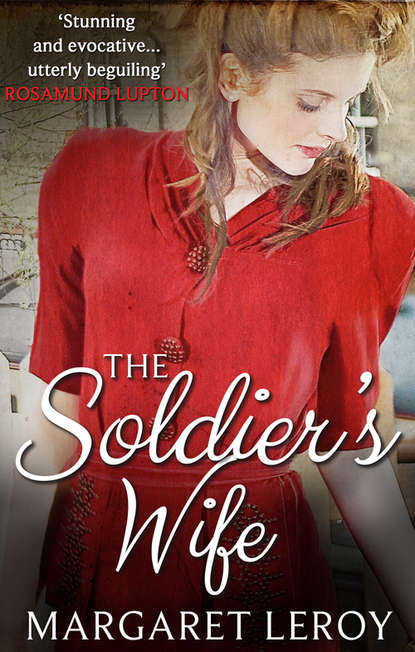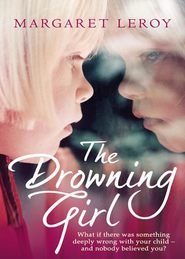По всем вопросам обращайтесь на: info@litportal.ru
(©) 2003-2024.
✖
The Soldier’s Wife
Настройки чтения
Размер шрифта
Высота строк
Поля
‘So, Angie—are you …?’ The words are solid things in my mouth. ‘I mean—how is everything?’
She fixes me with her sad, steady gaze.
‘Not so good, to be honest, Vivienne,’ she tells me, very matter-of-fact. ‘But I know I shouldn’t complain. So many people have lost someone.’
‘That doesn’t make it any easier though,’ I say.
We are silent for a moment. From outside, you can hear the bubbling sound of chickens, and the bright whistle of a blackbird in the elder tree by her door.
Her appearance troubles me. Her face has an eroded look, as though years have passed since Frank died; as though those years like a river have washed over her and started to wear her away.
‘You must say if there’s anything I can do,’ I tell her, rather helplessly. ‘Just anything at all. I could bring you some meals, or something …’
She looks up at me. She pushes her hand through her hair, which is a wiry dark mass round her head—she hasn’t bothered with her curlers.
‘You’ve got a kind heart, Vivienne. And—seeing as you’ve offered—well, there is something,’ she says. She flushes, a little embarrassed, and I wonder why. ‘I need to choose some hymns. For his funeral tomorrow. The thing is—I don’t have much book-learning.’
She’s telling me she can’t read; it surprises me that I never knew this before.
‘Just tell me what to do,’ I say.
‘There’s a hymn book in the cabinet in the parlour,’ she says. ‘I wonder if you could bring it for me? Just while I finish my wash.’
I go to her parlour across the passage. When her house was built hundreds of years ago, this room would have served as the byre—people and animals all sleeping under one roof. It doesn’t feel homely like her kitchen. There’s a lumbering three-piece suite that’s shrouded in dust sheets, and the air is stale, with a thick sweet scent of lavender polish and damp: you can tell she doesn’t often open the windows in here. I find the hymn book, take it to her.
‘Is there a list of hymns in the book?’ she asks me.
I turn to the front, to the contents list.
‘Could you read through the first lines for me?’ she asks. ‘Just to remind me—so I can choose my favourites?’
I read the first lines of the hymns, with a little pause after each, while she considers it, all the time turning the handle, so the water from the mangled clothes splutters down into the tray. She listens scrupulously, with an intent expression.
At last we come to one that she likes.
‘There. Stop there, Vivienne. “Rocked in the cradle of the deep.”’ She rolls the phrase round her mouth, as though it is succulent, like some sun-warmed fruit. ‘I’ve always been fond of that one,’ she says.
‘Yes. Me too. Would Frank have liked it?’ I say.
She considers this.
‘Frank didn’t think all that much of religion, to be honest,’ she says. ‘He didn’t have much time for religious folk at all. God-botherers, he called them. Bible-thumpers. What he always said was—they’re just as bad as the rest of us … But I like a bit of religion myself. I think it helps you through.’
‘Yes, it can do,’ I say.
‘Are you a believer, Vivienne?’
The direct question unnerves me. I think how, right through my life, I’ve always liked going to church: how I adored the church Nativity play when I was a child—being an angel, with wings of frail muslin fixed to my fingers with curtain-rings, and a halo of Christmas tinsel; how I love the stained glass and the singing; how I can still find comfort in the familiar, resonant words; how I still pray sometimes. But I’m not sure how much I believe now.
‘Well, I suppose so,’ I say.
The drip of the water seems too loud in the stillness of Angie’s kitchen—louder than her voice, which is confiding, nicotine-stained.
‘When I was a child, my mother taught me a prayer,’ she says. ‘The prayer of the Breton fisherman, she said it was. It was the only prayer you ever needed, she said. Oh, Lord, help me, for Your ocean is so great, and my boat is so small. That’s a good prayer, isn’t it? Do you like that prayer, Vivienne?’
I think of waiting at the harbour. Of the little boat that I couldn’t trust, wouldn’t go in. Of the perilous, shining, unguessable immensity of the sea.
‘Yes, I like it,’ I say.
She nods.
‘I always thought that was a good prayer.’ A little rueful smile. ‘Except He didn’t help me, really, did He? He didn’t help me at all. Not this time.’
I leave her wringing out her dead husband’s clothes.
CHAPTER 14 (#ulink_18e8ab46-9df7-555b-9721-e9d9e9ce9bf6)
I walk home through the summer morning, feeling so sad for Angie, thinking how lost she seems, how much she has aged. Wondering what I can do to help her. I’m not really looking around me: I’m in a trance, abstracted, like when I was a child and didn’t come when I was called, and Aunt Aggie would shake her head at me: ‘You’re such a dreamer, Vivienne. You’re always off in cloud cuckoo land. You think too much, you need to live in this world …’
If I hadn’t been so preoccupied, maybe I would have noticed the car in the lane: maybe I would have turned in time, and made for the track through the fields, and come home by the back way. But I’ve almost reached the car before I really take it in. It’s not an army vehicle, but a big black Bentley, drawn up on the verge outside the gate of Les Vinaires. I recognise the car. It used to belong to the Gouberts; they lived at Les Brehauts, an imposing whitewashed house near the church, before they went on the boat. The Germans must have requisitioned the car—which, as Angie says, means stealing.
The bonnet is open. One of the men from Les Vinaires is there, the scarred man I saw in the window, peering under the bonnet. I see him too late. I’d have done anything to avoid him, but I can’t turn back now: I know it would look like cowardice, and I’d hate him to think I was scared. He’s tinkering with the engine, muttering under his breath; then he opens the door, climbs in and tries the ignition—still with the bonnet up. The engine turns once, splutters, dies. He gets out, kicks a tyre, and swears, a rushed volley of German expletives. With a part of my mind, I’m thinking, Good—he may have stolen the car, but at least he can’t make it go … But I’m frightened too, and the prayer that Angie quoted to me slides into my mind. Oh, Lord, help me … I stand there, uncertain, apprehensive. I have to walk past him to reach the gate to my yard. I’m wishing more than ever that I’d thought to come back through the fields.
He turns, sees me. He has a shocked look: he stares, as if I am a ghost or apparition. As though I am the one who is out of place, who shouldn’t be there. The scented wind blows about us; it billows my skirt, then wraps it back against my body and pushes a strand of unruly hair into my mouth. My face feels hot, I know I’ve gone red, and I hate this. My heart stutters. I think he is going to shout at me or threaten me.
‘I apologise,’ he says. His English accent is very good, as good as Captain Richter’s. His face flushes slightly, almost as though he’s ashamed.
I don’t know what to say. I feel stupid, wrong-footed—clumsy, as though I use up too much space, as though my feet and hands are too big for my body.
‘That’s all right, it doesn’t matter,’ I say—the automatic response. Then I feel my hand fly to my mouth, as if to stop myself from talking.
He inclines his head in a little bow, and turns and goes into the house.
There’s a small scolding voice in my head: You’re letting the side down, you handled everything wrong. You shouldn’t have said it didn’t matter—you shouldn’t have spoken at all. Everything matters, nothing’s all right. It comes to me that this will be the shape of it, of our new life under the Occupation: always these troubling, frightening encounters—leaving you feeling that you’ve transgressed, and given something away.
Later, from my bedroom window, I watch as the scarred man comes out with one of the younger men, the one who has the kind of skin that peels in the sun. The young man has a tool box. He mends the car—deftly, with no fuss. The scarred man climbs in and turns the ignition: I hear the car start up. Through the car window, I can see the ironic smile on his face. The thought ripples in me that I know certain things about him. How he loathes machines, feels they oppose him, will never do his will: how this helplessness makes him angry. How he can lose himself in reading a book or a letter—frowning, running a finger absently over his brow. I know the look he has when he thinks that nobody is watching: how he will light a cigarette and leave it lying there, and roll up his shirtsleeves, doing these things unthinkingly, unaware of what he is doing. This knowledge makes me uneasy. It’s as though I am party to a secret that I never asked to be told.
Before the man drives off, he glances up at my bedroom window. Almost as if he knows I am looking, expects me to be looking. My heart thuds. I draw back into my room.
CHAPTER 15 (#ulink_3ca4dd3f-e1e4-5c02-975e-ff778f22edc4)
August. The island has never been lovelier, all our gardens lavishly flowering, the sky high and bright, a fresh salt wind off the sea. The Belle de Crécy roses are blooming in my back garden, drowsy with bumble bees, the flowers opening helplessly wide and spreading out their perfume.
Before the war, on such beautiful days I’d have taken the girls to the beach—perhaps to Petit Bôt with a picnic, Millie perched in my bicycle basket. Blanche and I would cycle down the lane that leads to the shore, a lane that is shadowed and secret with branches that meet overhead, and musical with the singing of the streams that run down to the water there; and then suddenly coming out into light at the end of the lane, to the beach that is held between tall cliffs like a jewel cradled between cupped palms, to the sleek wet sand and the glistening jade-green clarity of the sea. Or perhaps we’d go to Roquaine Bay, where the soft sand is perfect for sandcastles, or up to the north, to Vazon, with its wide clean air, all its spaciousness, or to the Forts Roques, the savage black rocks that rise from the water like broken teeth. You could always find a sheltered spot there, a patch of sandy grass where you could spread a rug for a picnic. There’d be crickets, and rock pools with emerald crabs, and delicate tamarisk flowers.
But we can’t do these things any more. The beaches are forbidden to us. They’re mined by the Germans, in case our army comes to take our island back—something that none of us thinks will happen. Our island is a prison.
Every evening I turn on the BBC news on the wireless, listening with a weight of lead in my chest—the news is all terrible. The Luftwaffe are bombing English airfields. Churchill calls it the Battle of Britain: he says that the Battle of France is over, the Battle of Britain has begun. Evelyn listens with me, though I don’t know whether she understands—whether what she hears makes sense to her. Sometimes as she listens her face seems to melt and tears spill over her face. Her emotions are always so near—as though with the passing of the years some defence she had, some outer protective shell, has been scoured and worn away in her.









